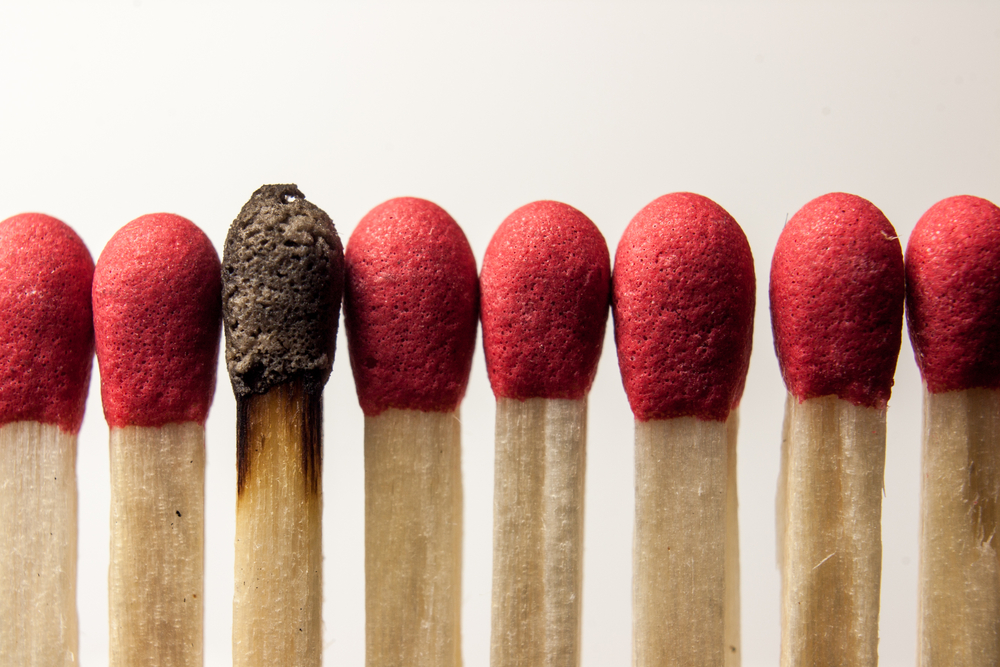113: How to conquer burnout and the golden handcuffs

Podcast: Download
As you know, I left medicine entirely about a year ago. I still have a couple of medical related businesses but that’s about it.
Without question, I have moved on. All of my physical and emotional energy are devoted to things outside of medicine.
Why? Well, I used to think it was a touch of attention deficit disorder. Sort of that—“been there done that” attitude.
The thing is, when I think back to when I started not enjoying medicine, it actually started in residency—as far back as my first year of surgical internship.
It’s sad because I was a HIGHLY motivated medical student. I was driven to succeed and my professors loved me (because I was a serious kiss-ass).
But then I started a neurosurgery residency and—well…I lost my mojo.
I experienced:
- physical and emotional exhaustion
- cynicism and detachment
- feelings of ineffectiveness and lack of accomplishment
I heisted these three descriptions of a person with the clinical diagnosis of burnout from a psychology journal.
The physical and emotional exhaustion I figured was from the fact that I was working 100 hour weeks (before the 80 hour work week limit now enforced).
Cynicism and detachment—this is horrible. I was surrounded by death in the neurosurgical ICU. When a patient died, it was not sad. It was an inconvenience. I found the paperwork irritating and it was difficult to be truly compassionate to families. That’s the truth. I hate to say it, but that’s the person who I had become.
And, as for feeling of ineffectiveness and lack of accomplishment? Well, you just need a couple of unsupportive senior residents to make you feel like crap. Surgical training in most cases is quite hierarchical and I found many residents to be of the kiss up kick down variety.
Remarkably, I finished seven years of training despite my, almost immediate, distaste for the system.
But it was also that dissatisfaction that, in part, made it so easy for me to go another direction.
Did I have to go another direction? Was that the only way for me to feel better? I always thought so.
But if you look at “burn out” as a kind of disorder like depression or even a back problem (a literal pain in the ass), then maybe there is a way to not give it all up and start over.
I did start over. But, it was a little easier for me to do that than most. First of all, I didn’t have much in the way of responsibilities when I first started my entrepreneurial life. My first daughter was a baby and my wife and I didn’t even own a house.
For others, the golden handcuffs of a high paid job and responsibilities, like paying the mortgage and for private school and colleges, make burn-out a particularly challenging problem.
In that case, it’s good to know you have options—that you can possibly treat the affliction without having to either give it all up or to simply continue to be miserable.
Burn out is a real problem for people who are highly successful and well paid. Most people have little sympathy for the doctor or engineer making $350K per year feeling burned out.
That makes it even more difficult to deal with because you might feel like it’s not ok to admit you’re not happy.
But, the reality is that at every level people deal with the same crap. We are all human and we have the same types of problems.
Maybe you’re just burned out? Maybe someone you know is burned out.
The good news is that there is help out there and there’s no reason to be miserable anymore.
Diane Ansari-Winn was an anesthesiologist who went through burn-out herself and now has become an expert on helping other physicians identify and cope with burnout. She’s my guest on Wealth Formula Podcast this week.
Of course burnout affects everyone, not just doctors so this is relevant to just about anyone professional listening to this show. This topic may not be as sexy as making tons of money but it may help you or it may help you identify someone you care about that needs help with a very treatable condition…burnout.
Dr. Ansari-Winn’s mission is to help create a health care system where physician wellness is considered an integral part of medical practice and that physicians are supported in doing what they truly want to do– to take great care of patients and advance the art and science of medicine.
Shownotes:
[00:07] Introduction
[17:08] Buck introduces Dr. Dianne Ansari-Winn
[17:52] Dianne’s story
[24:54] What is burn out?
[32:09] Happiness: Physiology vs Psychology
[41:26] How to approach a burn out issue
[47:56] Get in touch with Dianne
- http://www.dianneansari-winn.com/
- www.physicianvitalityinstitute.com
- A doctor’s Life Podcast
[49:16] Outro
 Send Buck a voice message!
Send Buck a voice message!




